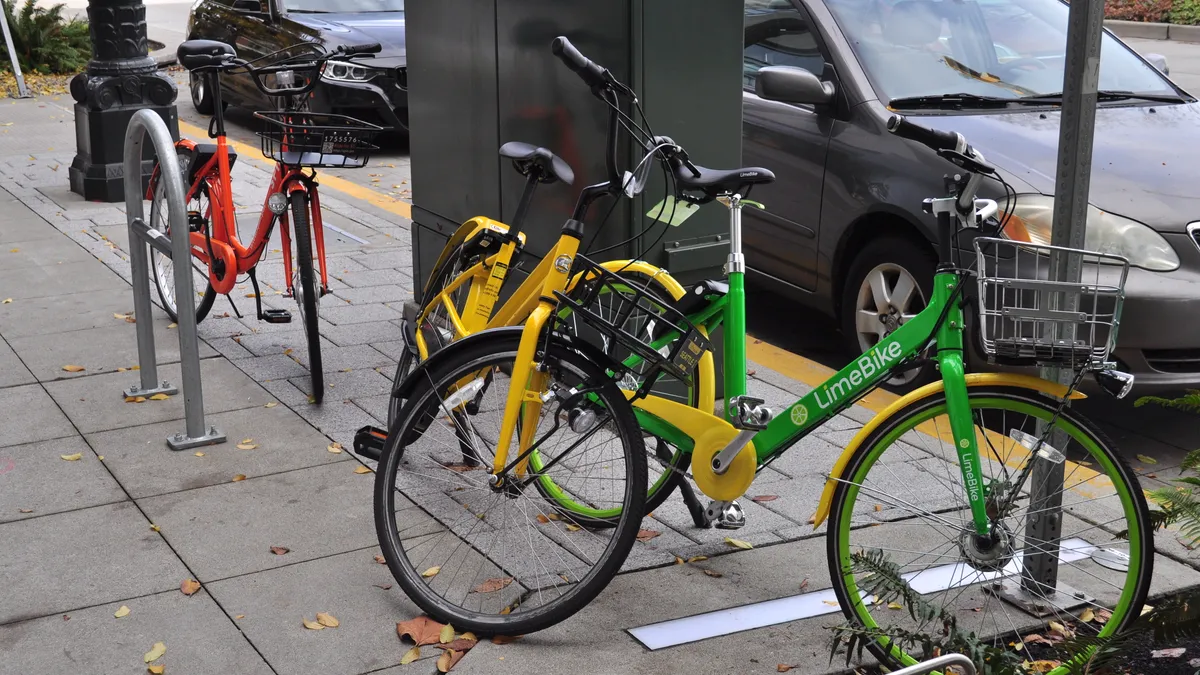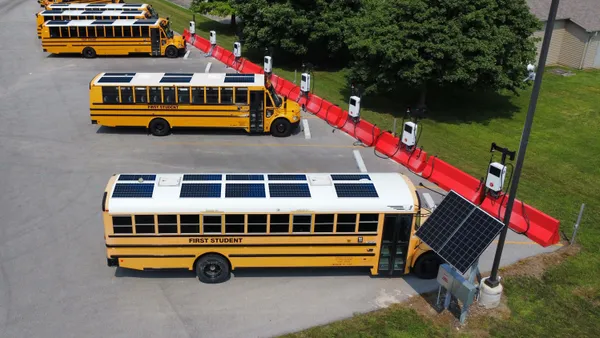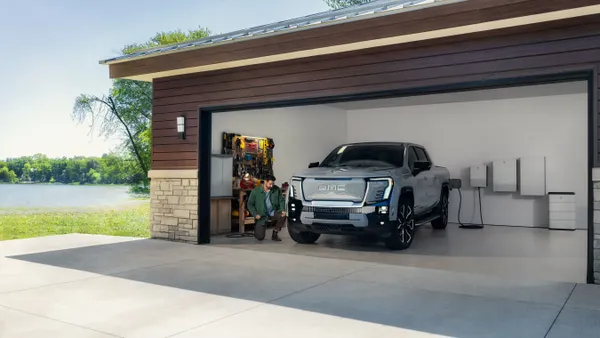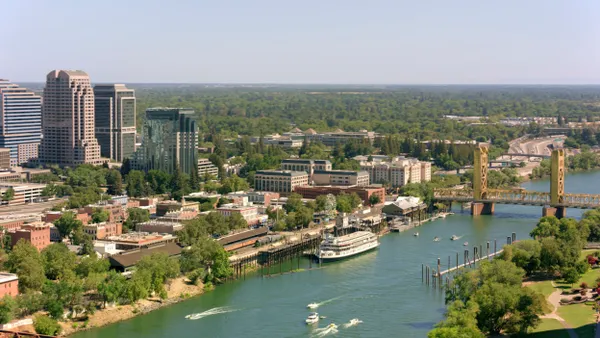Dive Brief:
- Dallas City Council members on the Mobility Solutions, Infrastructure and Sustainability Committee on Monday heard presentations from the city's Department of Transportation staff about possibilities for passing regulations to govern dockless bike-share.
- Staff recommendations include issuing annual permits to each operator for a fee, providing bike parking guidelines, providing parking violation guidance and requiring operators to share business data with the city.
- The final proposed regulations will go before the full council next month.
Dive Insight:
Dallas' bike-share woes have received much attention since December, when the city manager called out dockless providers for clutter and essentially gave them an ultimatum to clean up their acts. Although some city leaders believe the inappropriately parked bikes are due to shortcomings by the service providers and therefore it's their problem to fix, dockless companies and others view it differently.
Dockless operators explain that Dallas went about bike-share differently than other cities by not instating any rules or regulations prior to thousands of bikes suddenly appearing on city streets. That reportedly caused a lack of advance education about dockless systems and led to widespread customer confusion, and thus bike littering. Austin leaders specifically site Dallas' situation as part of the reason they have been slow to allow dockless bike-share within their borders while they first hash out how the system would function and be regulated.
Although Dallas is trying to get a better handle on its bike-share offerings now, imposing regulatory measures on an existing program almost always proves more challenging than if such actions were taken during the system's inception. Still, most dockless bike-share businesses report that they welcome governance and collaborations with cities to get a system of best fit in place, both early in the process and through follow-ups.
But some of the fee proposals suggested by Dallas city staff are getting hard pushback from the dockless operators. One concept involved charging a flat permit fee of $800 per year, plus a daily charge of $1 per bike per day. City staff gave an example scenario of an operator with 5,000 bikes in the city, which a couple operators already have exceeded in reality. In that scenario, with a $1 per bike per day fee, plus the annual $800 permit fee, the operator would owe the city more than $1.8 million each year. That structure could provide quite a windfall for the city if all five of the major dockless bike-share operators — LimeBike, Spin, ofo, Mobike and Jump — go along with the expense.
But that is a big "if." This hefty permit fee proposal has, unsurprisingly, been met with dockless operator opposition. A Dallas News article quotes an ofo representative's estimate that this fee, if imposed, would be 25 times higher than the largest fee paid to any other city. Dallas leaders reportedly worry that such high costs would prompt dockless businesses to abandon the idea of operating in the city altogether, and dockless bike-share representatives insinuated as much. Considering that dockless bike-share base customer fares tend to only run $1 or $2 per hour, and that each bike is not necessarily used multiple times a day, if at all, a $1 per day fee for each bike is a lot to swallow.
Although council members apparently aren't keen on the permit fee proposal and that aspect likely will be reworked, other aspects of the suggested regulations play more favorably. For example, providing parking guidelines and devising a system for enforcement could mitigate the clutter problem the city has been grappling with. Plus, a more manageable permit fee would partially go toward mobility infrastructure like bike lanes.











